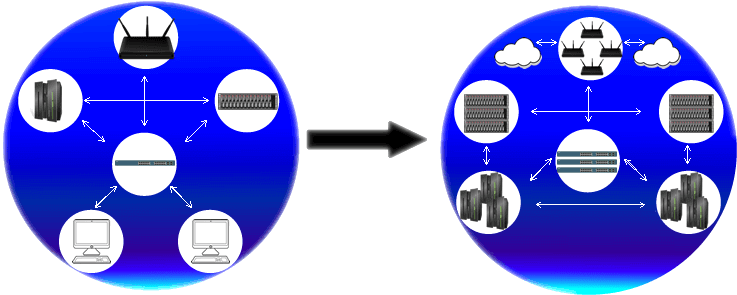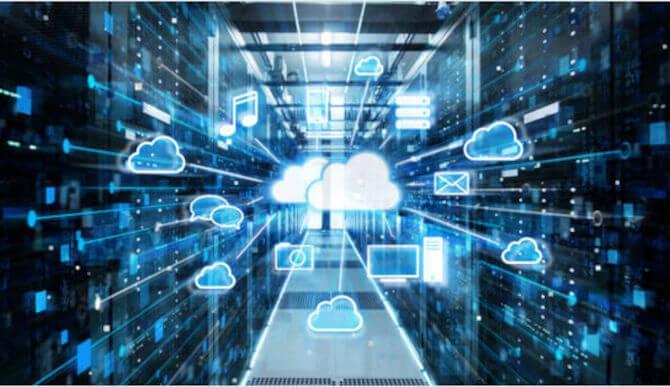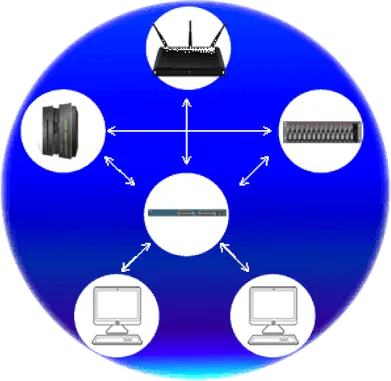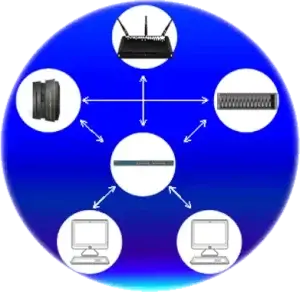Local and cloud computing

Two different TI Infratructure technologies?
Yes they are two somewhat different IT infrastructure technologies but, they actually complement each other
Local and cloud computing go together
In recent years many companies have shifted their on-premise IT infrastructures over to cloud computing.
Reasons why are many but, essentially, they boil down to the following:
- Access to more flexible and more powerful data processing resources
- Ability to do your work at any time from anywhere in the world
- Economies of scale by
- Paying only for what you need.
- Having less hardware on-site to manage, update and upgrade. Thereby reducing capital expenditures.
- Not having to hire more IT staff so often.
That’s all well and good and works great for individuals BUT, if you’re a company, especially a large one, all these benefits can suffer if you shift EVERYTHING over to the cloud.
This being said, local and cloud computing complement each other! Local computing is key to reaping the full potential and benefits the cloud offers to businesses.

What exactly is cloud computing all about?
In the simplest terms, cloud computing is the ability to store, process and access data and services over the internet instead of using local resources.
The cloud is simply a metaphor for the internet and, cloud computing is a metaphor for providing networking, servers, storage, software, dabases, and other services via the Internet.
 What exactly is local computing all about?Cloud computing offers many benefits that are far from negligible. However, when it comes to processing data from IoT (Internet of Things) sensors, it’s not all that great! | |
|---|---|
Local IT infratructure and systems | |
Having local computing infrastructures means you fully own everything and, it is your responsibility to manage, update and upgrade all the hardware in them. | |
 Having local infrastructures and systems provides one major advantage. It removes the need to send your raw data halfway around the world to be processed. Why? It’s quite simple:
| |
As all IT professionals know, the slightness slowdown and/or network glitch can have far reaching consequences! Local infrastructures and systems means your data is processed locally. It is sent to the datacenter only when required. Thereby eliminating the need to waste valuable time, resources and money implementing an infrastructure capable of transferring huge quantities of data in real time, just to have it fed back to the devices that produced it in the first place! | |
Advantages of having local IT infrastructures and systems | |
 Having local infrastructures and systems provides significant advantages and benefits that cannot be ignored! Internet of Things (IoT) devices, databases, software applications, e commerce and others all generate incredible amounts of data! Having local infrastructures and systems offers numerous advantages the cloud will never be able to match! | |
Local computing vs. cloud computing
If you have a large number of connected devices that produce large amounts of data, having local infrastructures and systems can eliminate problems that may plague your organization.
Take note
When comparing cloud computing with local computing, consider that local computing allows you to address situations such as:
Reduced latency
Data travels quite fast over the internet. In the case of fiber optic networks, in a vacuum, it’s estimated to be travelling at 60% of the speed of light.
When it comes to IoT devices, there are many cases that show that even a few milliseconds of latency can be the difference between success and failure! Just think of 911 services as an example.
Local infrastructures and systems remove the need for data to make a trip to the cloud. Thereby reducing latency and providing faster response times.
Increased redundancy
The internet is not always all it’s cracked up to be. Sometimes it breaks down and sometimes data gets either lost or corrupted as it travels from one network to another!
Processing data locally creates a welcome redundancy and ensures no data loss or operational failures related to Internet connectivity.
Local infrastructures and systems therefore enables mission critical organizations to leverage the power of the cloud, without risking the health of their data and/or operations
Enhanced security
Hackers are constantly looking for vulnerabilities they can exploit to gain access to your data.
While security tools, software and appliances protect your data, the only way to provide total and complete security is to process it locally and NOT have any access to the outside world. Something of an impossibility in today’s world!
With cloud computing in place and internet access being a necessity, 100% security isn’t possible! Local computing helps alleviate the risks and enables companies and organizations to achieve regulatory compliance.

In conclusion
Local computing offers many advantages but it will never replace the cloud! It does however provide tremendous advantages that do complement what cloud computing offers you. Local computing allows organizations and companies to :- Take full advantage of the IoT devices they use throughout their IT infrastructures
- Through local data processing, organizations and companies benefit from reduced latency, data redundancy and increased security
- Reduce risks and take full advantage of what cloud computing offers them.

